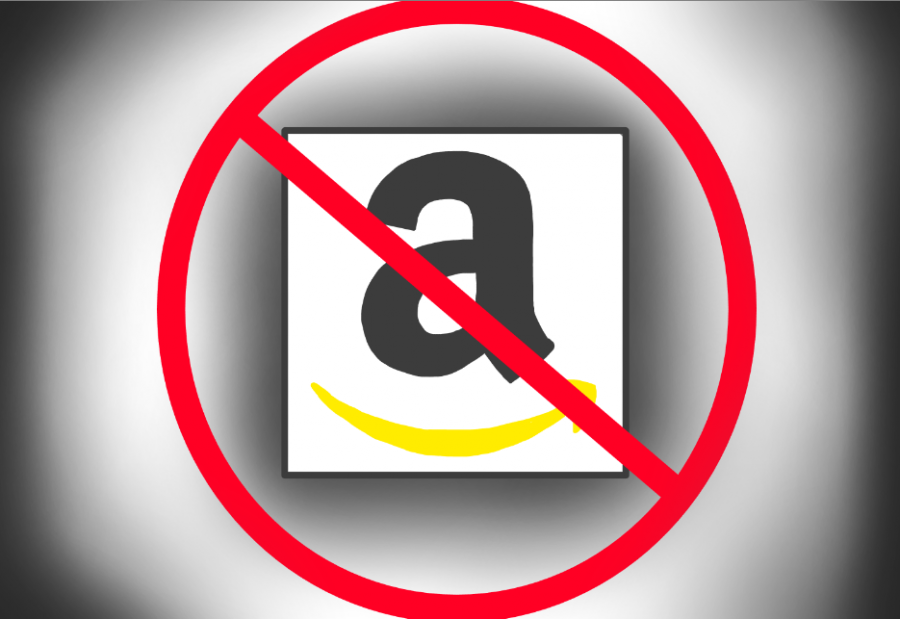OPINION: Local businesses deserve support during COVID-19
Local businesses have been hit harder by COVID-19 than big corporations
Government loans have been going to large corporations like Amazon, but we should be more worried about small businesses and individuals.
July 22, 2020
We live in a time where Prime delivery offered by Amazon comes in a few days. Walmart can deliver groceries and gaming systems to cars. Food service companies can drop off food right to a front door. What about neighbors or even friends who own local businesses? The story for small businesses is a little different than these billion-dollar corporations.
During the initial shutdown of nonessential businesses at the end of March, many large and small companies were forced to shut down until further notice. As the economy starts to open back up slowly, the recovery for local shops is not as easy as chain businesses. Many workers are needed to reopen, like Viktoria Belid, who works at Lily Bee’s Consignment Shop.
“I feel safe working. I don’t see any threats, everyone has their masks on, everyone has pretty clean hands,” Belid said. “I do offer gloves if they want one or a mask if they don’t have one. We clean the store very, very thoroughly every single day. Anything somebody does try on, we do set it aside and clean up and sanitize absolutely everything that we can.”
Shops across the country quickly had to adopt a new cleaning and serving system for customers. Kendrick Griffin, recent WSU journalism graduate and employee at Roost Coffee and Market, said businesses have responded within the parameters set by health departments.
“The way that the state will be conducting their health code searches and the way their health codes are set up will be updated due to COVID — I think it’s made a lot of us think about that,” Griffin said.
There was financial aid worth $349 billion that was initially set up to help support small businesses. The funds quickly ran out, and another $310 billion was recently approved to consider to support small businesses.
“Large corporations — they are all over, literally everywhere. If one of their locations starts to go down, they have support from the other locations. It doesn’t matter who owns them or is running them,” Belid said. “If it’s still a small family running that same [corporation], it still helps each other out. For a small local business, we don’t get that. We have our local customers and regulars, that’s it, that’s all we can depend on. If we don’t get business, we are more likely to close, which means there’s not much shopping in Pullman. Not only are [customers] helping us, but they are helping themselves in a way too. We are helping each other out.”
Griffin said it was important to help out locally, despite the convenience of a large corporation.
“I think that especially for Pullman, we have such a tight-knit community. If you look at your local baristas and servers, many of us know our customers more so than just customers but as people,” Griffin said. “I think it’s cool that customers have been supporting us back because they know us just as well. I think local, family-owned businesses give a lot back to the community through what they do. So I think it’s really important for customers and students to support local because we give back to the community in so many ways.”
Many popular stores can be convenient, especially during uncertain times like this. However, it is not as easy for small businesses to switch to a new way of helping customers. It is clear they care about the health and well being of Pullman. Local stores may not have two-day delivery, but they do have kind faces and helping hands doing their best to stay afloat during this time.

















